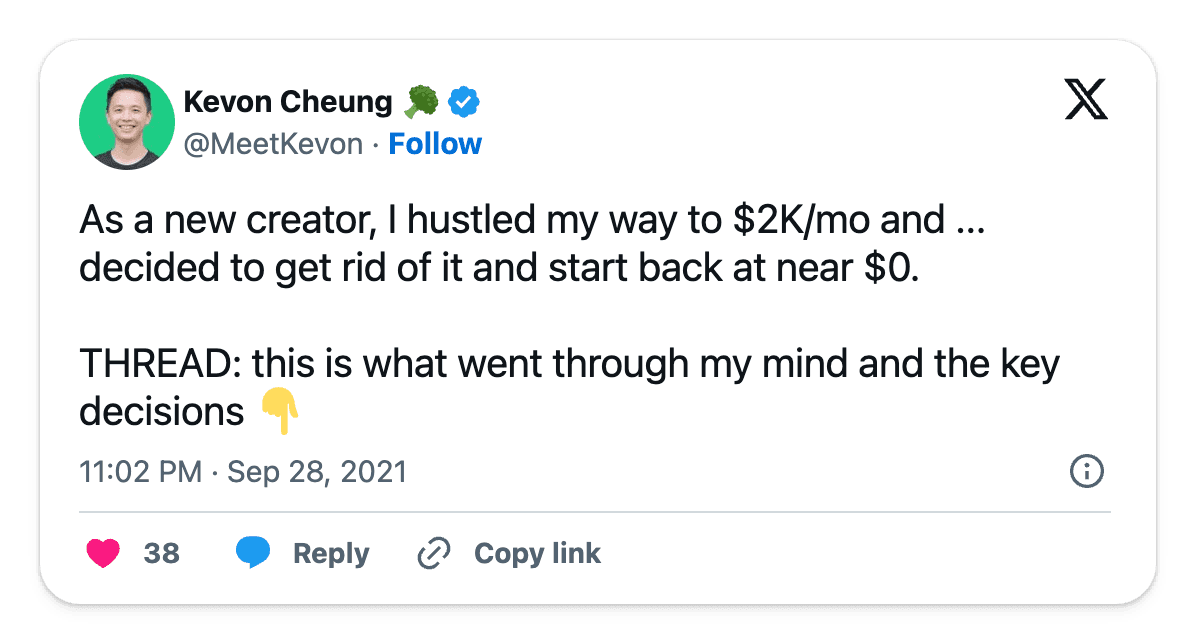How I grew to $2,000/mo then got rid of it
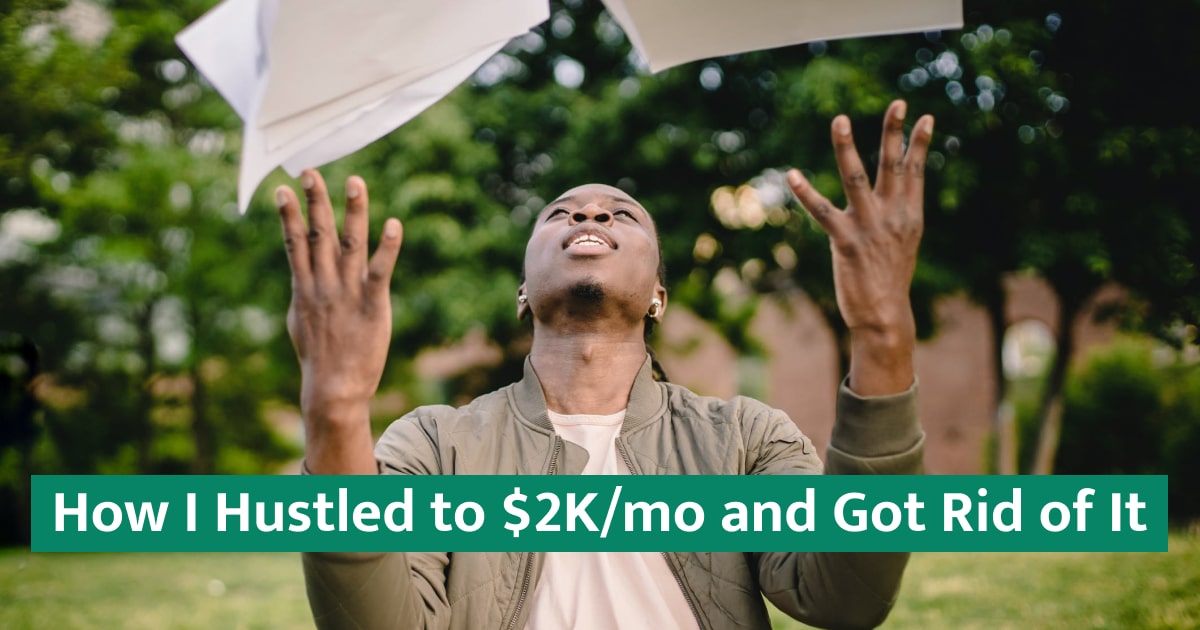
Who worked really hard to make a living online, found a way to reach $2K/month, and then said goodbye to the 2 revenue streams?
Yeah ... that was me.
To give you a quick background: I started creating online in Nov 2020 and started monetizing in Apr 2021. As a new creator, I tinkered with many different digital products:
A paid community
A 30 days cohort-based challenge
A 4-week pilot cohort-based course with live-teaching
A Notion template
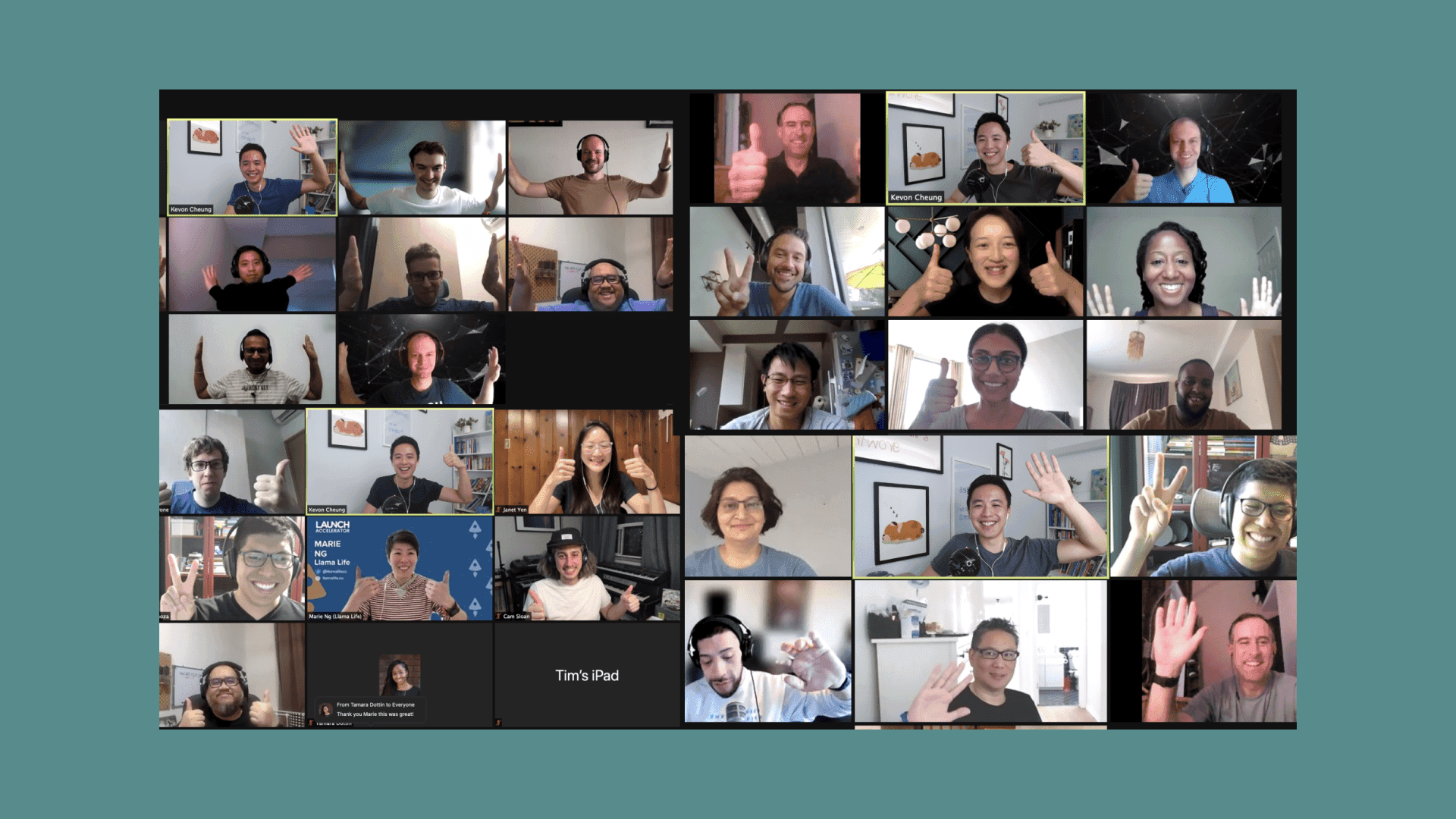
I didn't have a good grasp of setup effort, sustainability, or ROI for these products, so I followed my heart and experimented a lot.
In this post, I want to share the behind-the-scenes thinking of why I scrapped the revenue streams.
If you're a new creator, I think you'll be able to relate! 💪
Which product was working?
30DaysInPublic, the 30-day cohort-based challenge, was my first course product. I ran a total of 3 cohorts and iterated the content each time.
In the 3rd cohort in Jul 2021, it made $1,868. Honestly, it wasn't bad at all! 🙌
The other product was Public Lab, the paid community on Building in Public. I haven't been able to strengthen the value proposition and do much marketing for it, but it still has close to 50 paid members for $267.5MRR.
Together, they made up $2K+ in revenue in Jul 2021.
If working, what happened?
You would think that it must be the competition that caused me to stop these products. Nope!
In fact, I think for products like community, course, and info product, competition is rarely a concern. This is because people don't need to just pick one. If they're curious about a topic, they can buy many things from many creators.
What I was facing was the reality of an early creator - 🕤 time.
Up till today, I'm pretty set on doing everything myself until I can reach $5k/mo revenue. I have anxiety over trying to scale too quickly when I haven't figured out the product/market fit because of my past startup experiences.
With this decision plus me being a new dad, I have to be mindful and careful where I spend my time.
After designing and running all these products, here is my evaluation of their time commitment:
A paid community requires my attention all the time. I was scheduling AMAs with entrepreneurs, editing the videos and posting them, stirring up conversations, connecting people, writing newsletters, managing membership fees, setting up onboarding flow, etc.
A 30-day challenge requires my attention most of the time. Even though the content was shared over automated emails and videos, I had to handle marketing, recruiting, onboarding, setting up groups, facilitating live sessions, getting feedback, revising content, etc.
A live-teaching course requires my attention most of the time. I piloted a course in August where I lived and taught all the materials. While I set up the curriculum including live teaching materials, additional reading, and weekly assignments, I had to tweak things along the way in order to give the students the best experience. Preparing for live sessions always takes up mental space.
A paid Notion template requires not so much of my attention. I compiled Use Twitter Meaningfully with all my existing knowledge in the specific topic. It made $834 in August 2021 when it launched and then had about 1 sale every 5 days without much marketing effort.
Okay, it seems like the Notion template product is the best thing to work on.
Not yet! ❌
In my August income report, I talked about how an info product can make good revenue, and then depending on whether you have a sales funnel in place, sales can tank pretty badly.
Time factor is important, but I also look at a few things:
Is this the best way to provide an awesome experience? For example, there are many ways to teach Building in Public, does it have to be a 30-day challenge?
What am I good at? I learned that I enjoy teaching & sharing more than facilitating community engagement like mastermind groups.
What's the scalability of a product? Can a live-teaching course scale like a video course? But can a video course attract as many people as a cohort-based course?
All these are important. Okay, so here are why I stopped running 30DaysInPublic (the 30-day challenge making $1,868 in July) and charging for my community (making $267.5 in August).
I stopped running 30DaysInPublic
It was absolutely a fantastic time pulling together a group of people together each month to do this.
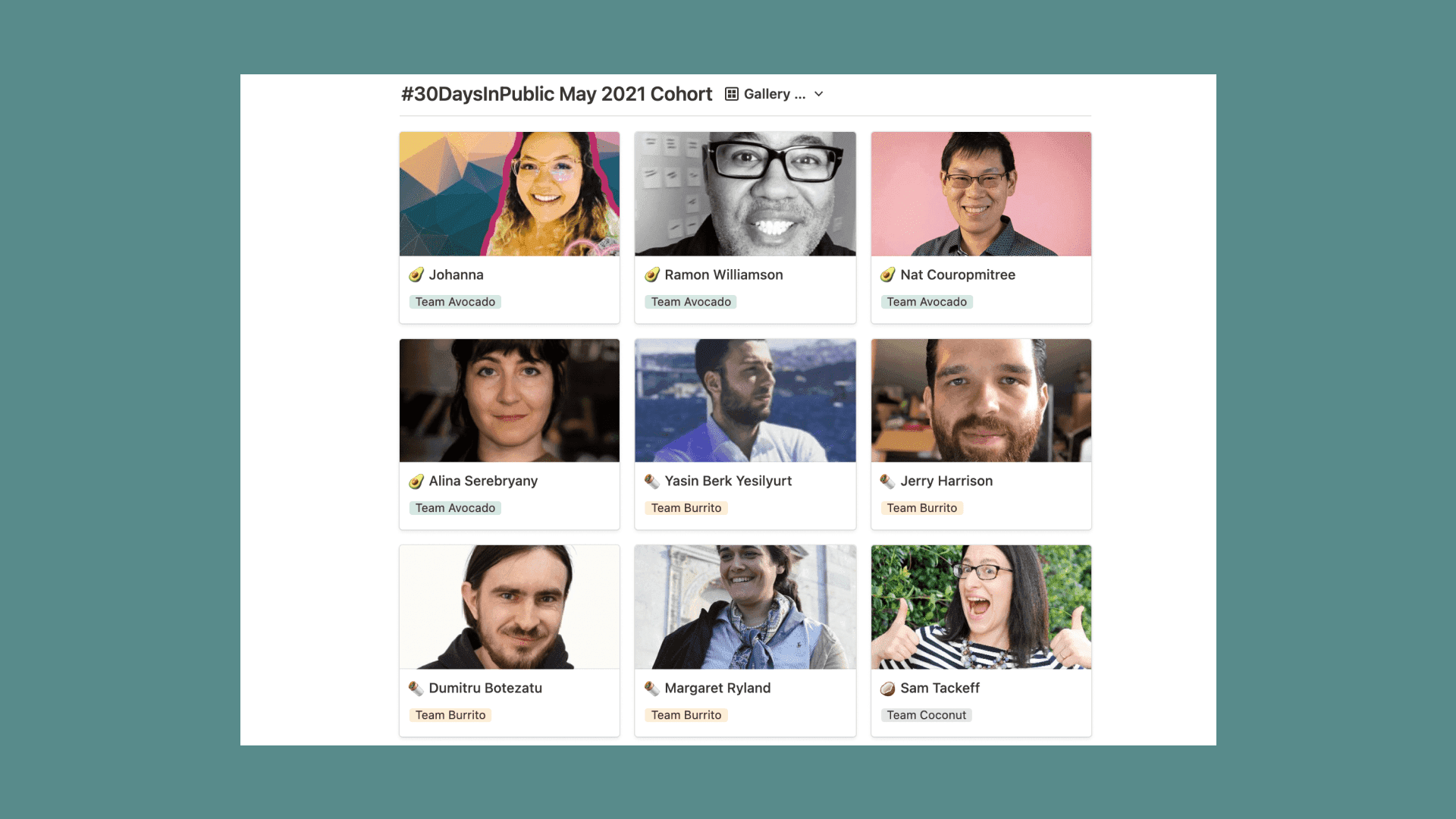
I knew I could have grown it by increasing the price or getting more students, but I needed to fix one thing first.
And that is the experience design.
One thing new course creators might not know is that there is no perfect course format.
We believe there must be a framework that can yield good learning experience, but the reality is that you have to figure out what works best for your topic and your students.
When I put together 30DaysInPublic, it was the classic "Move fast and break things" mindset - kudos to my startup experience.
For the July cohort, the curriculum was 15 emails across 30 days. Each email had:
A video related to Building in Public
A prompt challenging the student to open up on Twitter & a detailed tweet breakdown to show how to do it
Then we had a weekly live call to discuss and answer questions.
Since this was the 1st time of me creating a course, I could see that the parts were not working well with one another. It wasn't a structured curriculum design.
Even though some students would come to me and said the 30 days challenge was good and game-changing for them, I knew I should take a pause, revisit what I learned, and create a better course.
It is also why I'm part of the Maven Course Accelerator to improve my course design and facilitation skills.
I stopped collecting recurring membership fee
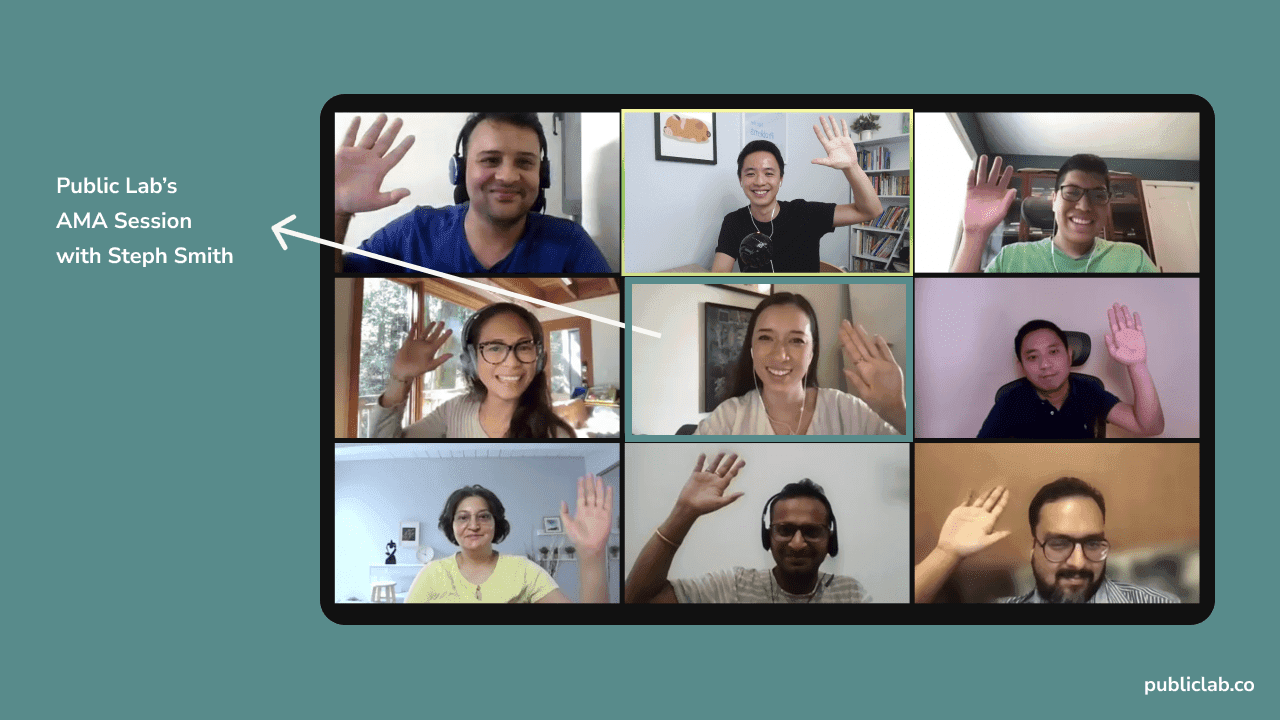
I announced to my 50 paid members that I would no longer charge them a recurring fee in order to be part of the Public Lab community.
They can still be part of the community on Slack and email list, and I'll still be running AMAs with entrepreneurs. The only difference is they don't need to pay an ongoing fee.
Of course, it is only a $267.5MRR decision (not a lot), but is still a big decision on my part given it is the only recurring revenue.
The decision comes down to 3 reasons:
🤝 Community Value
A community should not be just a space where people gather.
I know there are communities out there that charge people just to get on their Circle or Slack platform. I don't want that.
The community's mission, ongoing activities, and member engagement should be carefully designed and executed to be worth a recurring fee.
For Public Lab, since I realized my strength and interest is more in creating content and courses, the community should become a supporting part of my offering. And it shouldn't have a recurring fee attached.
🙌 Supporters

I know for a fact that many of them have been supporting my work even though they're not looking for a particular value in return. They're happy to pay even if they only participate once or twice a month.
This is encouraging and I'm super grateful for this - they are really my so-called "Super Fans".
But at the same time, it feels strange.
A one-off fee to support feels alright, but an ongoing fee to support feels uncomfortable to me.
I don't know who is there to support and who is there waiting for value, and I don't want a transaction to be in the mix of a genuine relationship.
🗯 💰Mental pressure
When I am collecting a recurring fee from members (monthly, quarterly, or annually) purely based on the community, I have this urge all the time to think of new ways to provide community values.
I had a part-time moderator to create discussion, I was planning mastermind calls ... there was a lot of mental pressure to keep creating synchronous things to look after a community of people.
As mentioned above, I figured my time should be spent more on creating content/courses.
And also it is because members from a paid community alone can lack a shared goal.
My plan is to create a new book called Find Joy in Chaos, and the community will be the supporting platform for everyone going through the learning journey. Everything we will do in the community is tied to an aligned learning outcome.
This becomes straightforward and members know how to help one another.
Final advice for creators out there
Of course, I'm not sharing all these to scare you off if you're still in your early days.
A lot of these decisions are personal and you might have done things differently (better) if you were in my shoes.
But what I want to achieve here is to show you the reality of my full-time creator journey, so that you can foresee what's coming to you and create more values with less dead-end.
Here are my final advice to you.
💰 Monetization
I know a lot of creators are scared of monetization because they think they have a small audience.
I believe you should spend at least 6 months to build up your credibility, but also
I encourage you to stop waiting for the perfect moment to monetize.
Because it is one thing to create free content for everyone to enjoy and feel awesome about it (my first 6 months), it is a completely different thing to start charging for value with the right positioning, messaging, or even mental state.
You see ... only after 6 months of monetization, I finally "seem to" know how all these work.
💫 Try many things, then focus
I believe we all have to try many different things to learn it ourselves.
Do I think my effort has gone to waste? I don't think so.
I see it as a natural transition from exploring many ways to now focusing on 1-2 things that I believe have the largest potential.
I want to create a core product offering so good that people enjoy and naturally spread it for me.
Good things take time!
I also want this to be an evolving product that continues to deliver an experience to new people. For example, a course that is constantly being upgraded to help anyone show up right and grow their super fans.
💣 Be willing to shut things down
Money is attractive, especially when you're doing this full time so a lot of stakes are at risk.
But I don't think we can let it affect our decisions.
Sometimes we need to be okay to get rid of things that are holding us back.
So that we can keep running forward and be laser-focused.
I'm now down to almost making $0 now, but I'm confident about my next thing. Yup, this is a self-justification for my decisions above, but I'll let you decide what's right for yourself.
This is a long post, so thank you if you're reading up till this point.
There is also a lot to be discussed, maybe you think I could approach it differently, so I would love to hear your thoughts! Jump in the discussion here:
